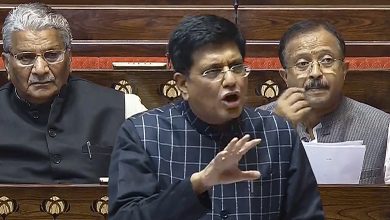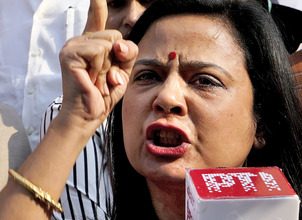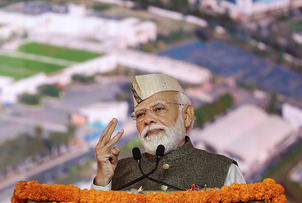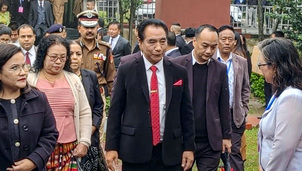‘Won’t allow Class 12 exams unless sure of ‘no fatality’ due to COVID’

New Delhi, June 24 (PTI): The Supreme Court on Thursday told Andhra Pradesh it is not convinced of the precautionary measures suggested by the state for holding Class 12 board exams and said unless satisfied that there will be no fatality due to COVID, it will not allow them.
The apex court said it may also look into the aspect of compensation in case of a fatality like in many other states where Rs 1 crore is given for the death due to COVID-19.
A special bench of Justices A M Khanwilkar and Dinesh Maheshwari, which posed tough questions to the Andhra Pradesh government on its decision to hold Class 12 board examinations, asked the standing counsel for the state Mahfooz A Nazki to place before the court the snapshot of the file giving reasons to hold the test. We are not satisfied with the precautionary measures you will be taking for holding the exams. We are not convinced with the mechanism you have devised. Unless we are satisfied that you are able to conduct the examination without any fatality, we will not allow you to hold the examination, the bench said. We have to see the aspect of compensation in case of any fatality during the examination. Some States have given Rs 1 crore compensation for death due to COVID. We can look at things through that aspect, it said.
The top court is hearing a plea seeking directions to state governments not to hold board exams in view of the COVID-19 pandemic.
During the hearing, the top court flagged its specific concern over accommodating 5,19,510 students in classrooms for the exams and said the state government says that maximum of 15 to 18 students will be in one class.
If we go by your figure then for 15 students per class, you will need 34,644 rooms and if we take 18 students per class then you will need 28,862 rooms. Tell us from where you get all these rooms, the bench said.
It told Nazki, Don’t hold examinations for the sake of examination. It is not only 5 lakh students giving the examination, more than a lakh people will be involved in the process including 34,000 supervisors for each room. You have to think about their health and safety also .
The bench said the state should keep in mind the impact of the second COVID wave, how fast it unfolded and how it will cope if it is hit by the third wave.
Do you have any contingency plans? If you are hit by a third wave or if there is any unwarranted situation how will you deal with it. We have not seen any such thing on your affidavit. No one is here to prove anything. You must have thought about something about the health and safety of students and teachers, the bench said.
Nazki said the major problem was that in Class 10 students are given only grades and there is no mechanism to evaluate the students.
We understand your difficulty that converting grades to marks or evaluating the students will be a problem. But every problem has ten solutions. You talk about experts. You can talk to UGC, CBSE, CISCE or other States and experts and devise a formula. Many states had problems but they have decided to cancel the examinations, the bench said.
The top court also flagged its concern that Andhra Pradesh has not mentioned a timeline for the exams or results and asked the state to specify it to avoid any uncertainty in the minds of students.
You cannot keep things uncertain. If you want to hold the examination we want a concrete plan by tomorrow. We want to know what your COVID protocol management is and how you are going to implement it. You must know that first and second COVID are different and as per experts the third wave will also be different. Alerts have been sounded in Madhya Pradesh, Maharashtra and Kerala for Delta variant, the bench said.
The top court asked Nazki to file an affidavit by Friday giving the complete plan and convince the court that it has the entire necessary wherewithal to deal with any exigencies.
We want a complete break-up of things. Right from students and teachers’ transportation, classrooms and their sitting arrangements, ensuring maintenance of COVID protocols or we will direct you not to hold the examination, the bench said, pointing out that many states have taken the decision to cancel the examination looking at the ground reality.








